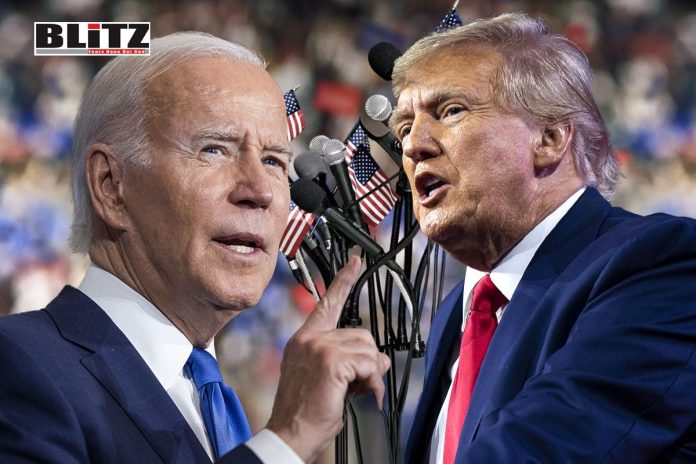With the United States on the cusp of another presidential election, the global community braces itself for the potential repercussions of either a Joe Biden or Donald Trump victory. Depending on the outcome, significant shifts in American foreign policy are imminent, as each candidate presents markedly different approaches to international relations.
The recent primary elections have paved the way for a familiar showdown between incumbent Democratic President Joe Biden and former Republican President Donald Trump. Despite aspirations for novelty and fresh perspectives, the looming prospect of a Biden-Trump rematch highlights the resilience of entrenched political dynamics, setting the stage for a consequential battle for the White House once again.
While domestic concerns like economic inflation, healthcare, and immigration take center stage in American discourse, the global community eagerly anticipates glimpses into the future trajectory of US foreign policy. Recognizing that US decisions resonate worldwide, affecting economies, security, and diplomatic ties, international stakeholders closely monitor developments.
Amidst an ever-evolving geopolitical landscape, comprehending the subtleties of each candidate’s foreign policy agenda becomes crucial for nations and leaders. The rhetoric and strategies articulated by Biden and Trump hold significance for diplomatic engagements, the formation of strategic partnerships, and the pursuit of common global objectives. As such, the nuances of their respective approaches carry weighty implications for international relations and the pursuit of global stability.
Under a Biden presidency, a key focus is expected to be on bolstering support for Ukraine to counter Russian influence, a stark departure from Trump’s more ambiguous approach. Trump’s openness to Russian involvement in NATO states signals a shift away from longstanding American commitments to collective defense.
In the Middle East, Trump’s policies have been characterized by unwavering backing for Israel and a confrontational stance against Iran. The administration’s efforts to escalate tensions in the region and isolate Tehran suggest the possibility of further military involvement if Trump secures reelection. Trump’s speeches, such as those delivered at the Conservative Political Action Conference, underscore his commitment to combating extremism and thwarting Iranian influence in the Middle East. These contrasting approaches highlight the significant differences in foreign policy priorities between the two administrations.
Biden’s expected time in office is likely to sustain a level of stability in US-China relations while potentially adjusting trade tactics. While both candidates hold strong positions on Beijing, Biden’s preference for multilateralism indicates a focused push to unite allies against shared issues such as intellectual property violations and unjust trade practices. This approach suggests a shift towards collaborative solutions and a departure from unilateral actions.
Regarding leadership style, Biden is expected to adopt a conventional approach to diplomacy, emphasizing the strengthening of traditional alliances and fostering cooperation among a multitude of nations. Conversely, Trump’s transactional diplomacy prioritizes bilateral agreements and adopts a more assertive stance on matters such as trade and security.
As the presidential race unfolds, global attention is laser-focused on each candidate’s foreign policy platform, recognizing the profound implications at stake. The international community is acutely mindful that the election outcome will reverberate far beyond US borders, amplifying anticipation worldwide. The evolving dynamics of the US-China relationship, coupled with the contrasting diplomatic strategies of the candidates, underscore the critical importance of the election’s impact on shaping the trajectory of global affairs in the foreseeable future.
The outcome of the US election holds significant ramifications for global diplomacy, as Biden and Trump offer contrasting visions for America’s global engagement. The choice between upholding the existing order and advocating for transformation, between conventional diplomatic strategies and transactional methods, will shape the trajectory of international relations for years to come. The decision carries weighty implications, influencing how nations interact and cooperate on pressing issues, underscoring the profound importance of the electoral outcome on the world stage.




